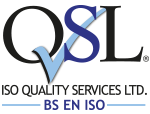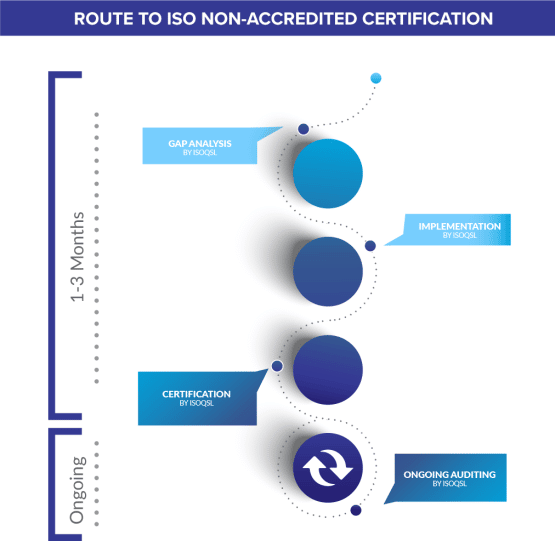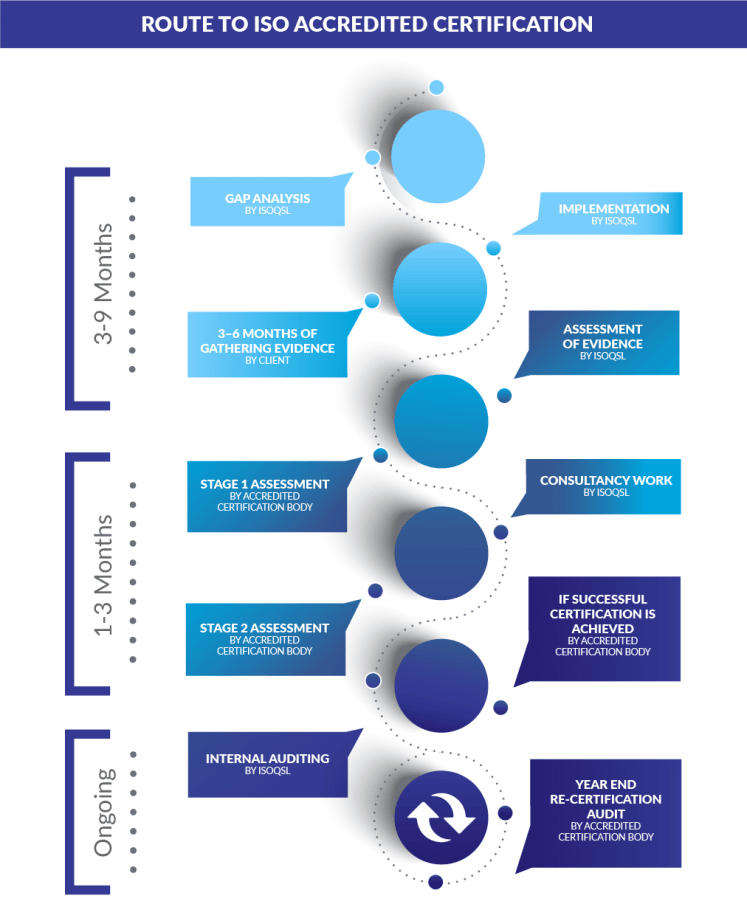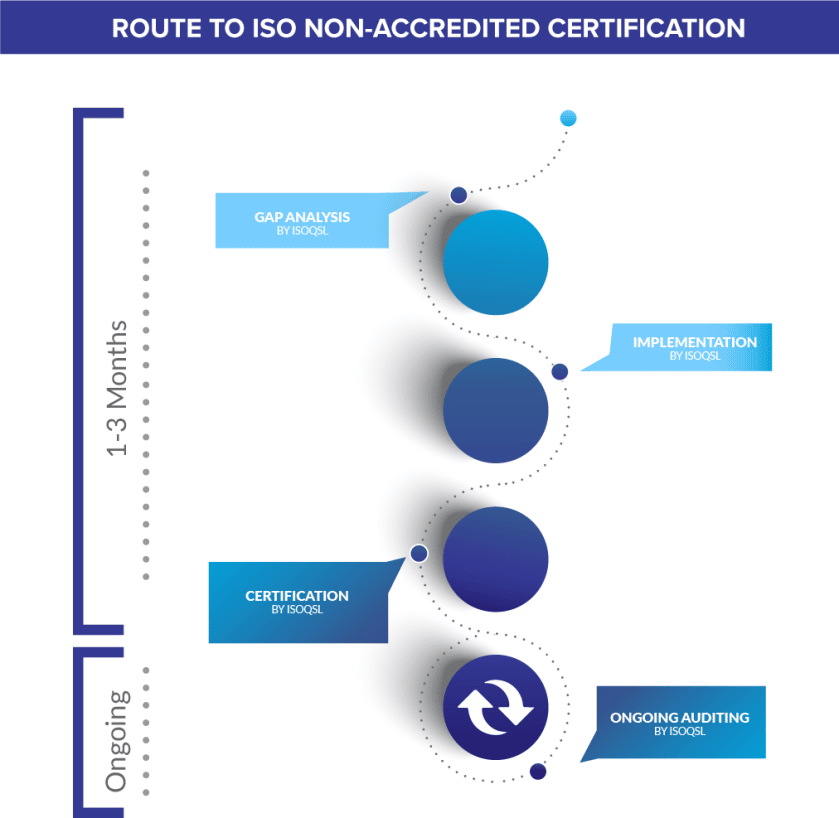What is ISO certification?
ISO Certification is a seal of approval from an external body whereby a company complies to one of the internationally recognised ISO management systems. Certification can be used to tender for business as a proof of a company’s credibility but also instils confidence in a potential client that promises will be kept.
There are two routes to obtaining ISO Certification: accredited certification or non-accredited certification. It’s important to remember that whichever route you choose, the management system you are implementing is exactly the same. It’s just who certificates you and how they do it that’s different.
What is ISO Accredited Certification?
ISO accreditation or ISO accredited certification is when a company has achieved an ISO and / or BS standard by a certification body that is accredited by UKAS, INAB or equivalent.
Please note that there is only one true accreditation body in each country and any other forms of ‘accreditation bodies’ may be misleading. For example, the accreditation body for the UK is UKAS and Ireland is INAB. In most countries accreditation is a choice and not an obligation.
An accredited certification body can only perform the functions of an assessment / audit body and must not have any involvement in the set-up to certification process. This can therefore mean having to employ a company such as ourselves as the consultant to implement the system and have the accredited body in to certify it. This not only adds additional expense to the client but can also delay the time it takes to achieve the certification, taking an average of 9 months.
What is ISO Non-Accredited Certification?
On the other hand, not only can a certification body act as the consultant to implement the system/s into a company, they can certify the company once compliant to the standard/s and offer support and guidance throughout the year to ensure that the company maintains its certification and most importantly uses the systems to benefit the company, on an on-going basis.
The fact that a certification body is not accredited does not mean that it is not a reputable organisation, for example a certification body operating nationally in a highly specific sector might enjoy such a good reputation that it does not feel there is an advantage for it to go to the expense of being accredited.
You can read more about these differences and ISO certification on the ISO website here.
Do you require Accredited Certification?
From time to time we understand that clients may be required to move towards UKAS accredited certification. We can assist with the complete transition from the non-accredited certification that we provide, to a UKAS accredited certification by another provider. It is important to remember is that if you opt to choose us as your set-up to certification provider initially is that the systems are the same; it’s who certificates you that would be different.
Most often than not companies that require UKAS accredited certification do so because their client base demand it. Should this be the case we will aim to make the transition as simple and cost effective as possible and will even assist you in sourcing an accredited certification partner. We can then continue to work with you on an internal audit basis should you wish, as the main difference between accredited certification and non-accredited certification is that the accredited provider will be unable to offer any form of consultancy service, which is part and parcel of the non-accredited certification process we provide.
Don’t just take our word for it, hear from a company that we have successfully taken through the UKAS Accredited Certification route – IASME.





